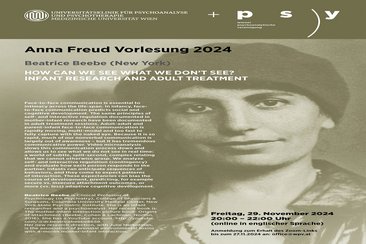
Face-to-face communication is essential to intimacy across the life-span. In infancy, face- to-face communication predicts social and cognitive development. The same principles of self- and interactive regulation documented in mother-infant research have been documented in adult treatment sessions. Adult-adult and parent-infant face-to-face communication is rapidly moving, multi-modal and too fast to fully capture with the naked eye. Because it is so rapid, much of our nonverbal communication is largely out of awareness – but it has tremendous communicative power. Video microanalysis slows this communication process down and allows us to see what we do not see in real time: a world of subtle, split-second, complex relating that we cannot otherwise grasp. We analyze self- and interactive regulation (contingency) and evaluate how each person responds to the partner. Infants can anticipate sequences of behaviors, and they come to expect patterns
of interaction. These expectancies can bias the course of development, predicting, for example secure vs. insecure attachment outcomes, or more (vs. less) adaptive cognitive development.
Program
Beatrice Beebe is Clinical Professor of Psychology (in Psychiatry), College of Physicians & Surgeons, Columbia University Medical Center, New York State Psychiatric Institute. She is an infant researcher and a psychoanalyst. Her recent book is: The mother-infant interaction picture book: Origins of attachment (Beebe, Cohen & Lachman, Norton, 2016). She has a YouTube account: https://www.youtube.com/@dr.beatricebeebe8658
Her new research direction, with Julie Herbstman, is the association of prenatal environmental toxins with 4-month mother-infant interaction.
Registration
Anmeldung zum Erhalt des Zoom-Links bis zum 27.11.2024 an office@wpv.at
